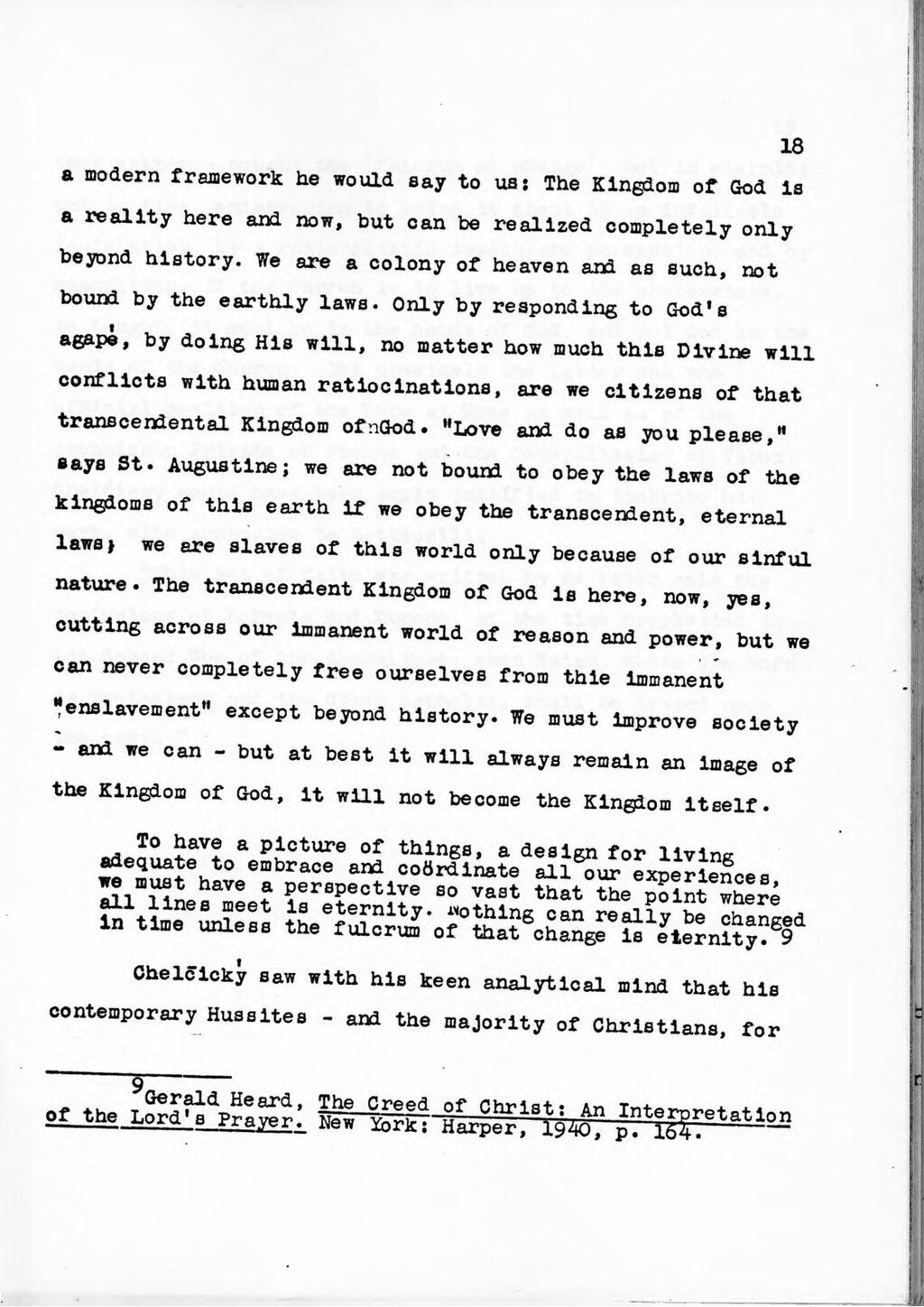a modern framework he would say to us: The Kingdom of God is a reality here and now, but can be realized completely only beyond history. We are a colony of heaven and as such, not bound by the earthly laws. Only by responding to God's agape̍, by doing His will, no matter how much this Divine will conflicts with human ratiocinations, are we citizens of that transcendental Kingdom of God. "Love and do as you please," says St. Augustine; we are not bound to obey the laws of the kingdoms of this earth if we obey the transcendent, eternal laws, we are slaves of this world only because of our sinful nature. The transcendent Kingdom of God is here, now, yes, cutting across our immanent world of reason and power, but we can never completely free ourselves from thie immanent "enslavement" except beyond history. We must improve society – and we can – but at best it will always remain an image of the Kingdom of God, it will not be come the Kingdom itself.
To have a picture of things, a design for living adequate to embrace and coördinate all our experiences, we must have a perspective so vast that the point where all lines meet is eternity. Nothing can really be changed in time unless the fulcrum of that change is eternity.9
Chelc̄icky̍ saw with his keen analytical mind that his contemporary Hussites and the majority of Christians, for
9 Gerald Heard, The Creed of Christ: An Interpretation of the Lord's Prayer. New York: Harper, 1940, p. 164.
